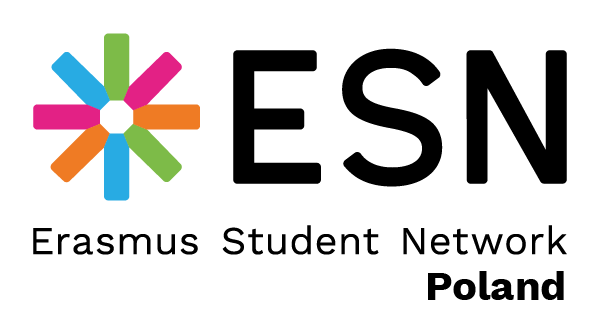1. What are the most valuable skills you have gained through your activity in the Erasmus Student Network?
In high school I was a member of an association, aimed at building civil society and at university I participated in Scientific Research Groups. Although, I gained experience and had fun through that, it wasn’t enough for me. ESN gave me the opportunity to be responsible for my own work and its outcomes. As time has shown me, what I did in ESN had long-lasting, positive consequences. Often working on projects means facing unplanned challenges, learning new things and blazing trails. You have to learn how to organize your work effectively and efficiently. With bigger initiatives you have to invite other people to do it with you, which teaches you how to cooperate within a team and how to delegate responsibilities. All those experiences made me into a much more open person that is always ready to face the unknown.
2. Did ESN impact your career and life after graduation? How?
Most definitely. During my doctorate studies I tried to divide my time equally between scientific studies and projects, for example organising a science conference, conducting stationary classes or organizing science trips. Thinking about my adventure with ESN and a 1,5 year long doctorate exchange in Toruń is something that drives me in my professional career. In all those years I spent in ESN, I have met many valuable people, with whom I’m still in contact and we’re constantly sharing experiences.
3. If you were an ESN project, which one would you be?
It’s a very hard question, as I took part in many different projects, both in my section and on national level. Amongst them… I guess the initiatives that allowed for making a connection between exchange students and local communities. I helped the coordinators of projects such as SocialErasmus or National Erasmus Games (formerly known as ESNOLYMPICS) in times when they have just been created. Blazing the trails in those initiatives was amazing.
4. ESN for me is…
Family. Passionate people, who devote their time to do something, learn and cross their own boundaries. ESN is not just a break from student life, it is also a great way for you to discover your true calling. What you want to do with your life and what drives you.
5. Is it worth working in a non-profit organization (student organization)?
Most definitely. It is an amazing way to complement your student life. Moreover, it teaches you things that are outside your university curriculum, but are still useful in your career. It shows you parts of yourself you didn’t know about before and makes you step out of your comfort zone. You can be a member of different organizations, but ESN is the one that can give you so many varying experiences, both for future entrepreneurs or scientists.
6. An interesting fact from your life in Erasmus Student Network
There were so many. However, it is worth to mention that in 2009, by accident, I found a lost email from a girl named Kasia, who wanted to join ESN and show that she will be very helpful (which she more than proved). I asked her to help me with Schuman Parade and afterwards with organising trips for Erasmus students. She enjoyed it immensely and she encouraged her friends to join ESN UKSW. One of the amazing people she enlisted, by sharing her experiences, was her friend, Adrianna. Both of them are now among honorary members of the section. Life plays funny tricks sometimes.
7. How did your adventure with ESN start?
I joined ESN in 2008, just after my section was created. Its’ founder Roman Szlązak persuaded me to come on board. Soon I got my own project and I was able to engage in others. Due to all my work I went to National Platform Toruń 2008. Participation in this statutory meeting changed my approach to the organization, which translated into stronger involvement. One year after joining ESN, I began my 3 year long adventure as part of the board of my section and in organizing committees of different national projects.
8. From where do you derive your inspiration and motivation?
Many years ago I was asked about one of my life goals and at the time, half-jokingly half-seriously, I said that I should do something that will become part of history (it was an interview that was later a part of promotional materials). Now, from a time perspective, I can see that what I gave to our organization is an inspiration and pays off.
